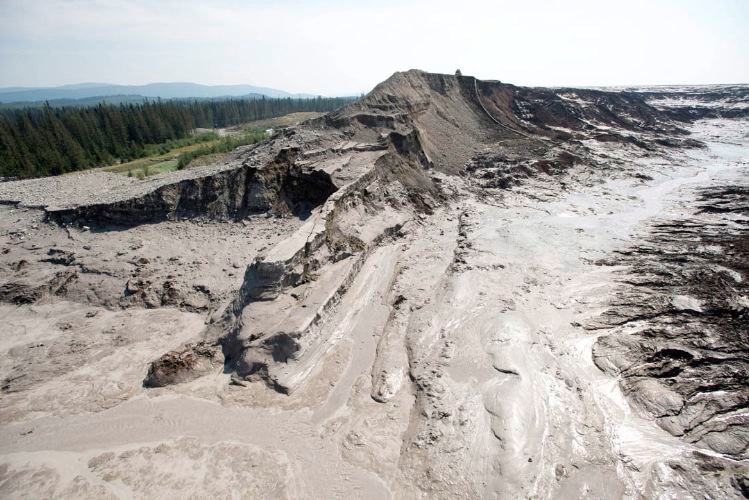No charges are being issued under the province's mining laws against Imperial Metals' over the catastrophic failure of its Mount Polley mine dam.
Following a more than one-year investigation, B.C.'s chief inspector of mines has not recommended charges be forwarded to Crown counsel over the dam failure on Aug. 4, 2014.
The failure of the rock-and-earth dam released 21 million cubic metres of water and finely-ground rock containing potentially toxic metals into the Quesnel Lake watershed.
"Although there was poor practices there was no non-compliances we could find," B.C. chief inspector of mines Al Hoffman said Thursday in releasing the investigation report.
There will also be no fines or penalties issued either, as B.C.'s mining legislation and regulations do not allow for administrative actions.
Hoffman, however, has made 19 recommendations to ensure another such event does not occur. Those include that a dam safety manager be appointed at mines and that mines be required to appoint independent review panels as a second pair of eyes on designs and operation.
B.C. Energy and Mines Minister Bill Bennett said all 19 recommendations will be implemented.
The chief inspector's investigation found the cause of the failure was a design problem that failed to account for a weak glacial soil layer beneath the foundation of the dam.
But the chief inspector of mine's investigation also found that the management by Imperial Metals of the tailings dam and facility, including its water balance, was a factor.
Hoffman said the company could not pass off responsibility of dam management to its engineers.
The chief inspector's finding is similar to that of a B.C.-government appointed engineering panel that delivered its conclusions last January.
That engineering panel also found the dam could have failed by overtopping, which it almost did, or it could have failed from internal erosion, for which some evidence was discovered.
The panel concluded "business as usual" could not continue and recommended moving away from the conventional method of storing mine waste behind earth-and-rock dams and under water to technologies such as dry-stack tailings.
The B.C. government is examining how to implement that panel's recommendations.
The remaining investigation into the Mount Polley dam failure is being conducted by the B.C. Conservation Officer Service and the federal government's Department of Fisheries and Oceans over potential violations of environmental laws.
It's expected to be complete next year - and could result in charges or fines.
As part of that investigation, Imperial Metal's offices in downtown Vancouver and its mine site in the Interior were raided last February to obtain evidence.
The mining industry in B.C. and Canada was shaken by the Mount Polley dam failure.
It sparked concerns among the public, environmental groups and First Nations that aquatic life would be harmed, particularly salmon which use the Quesnel Lake system to spawn. Studies on the effect of the spill are expected to continue for years.
The catastrophic collapse last month of a tailings dam at a Brazilian mine owned by global mining heavyweights BHP Billiton and Vale SA has only exacerbated concerns.



